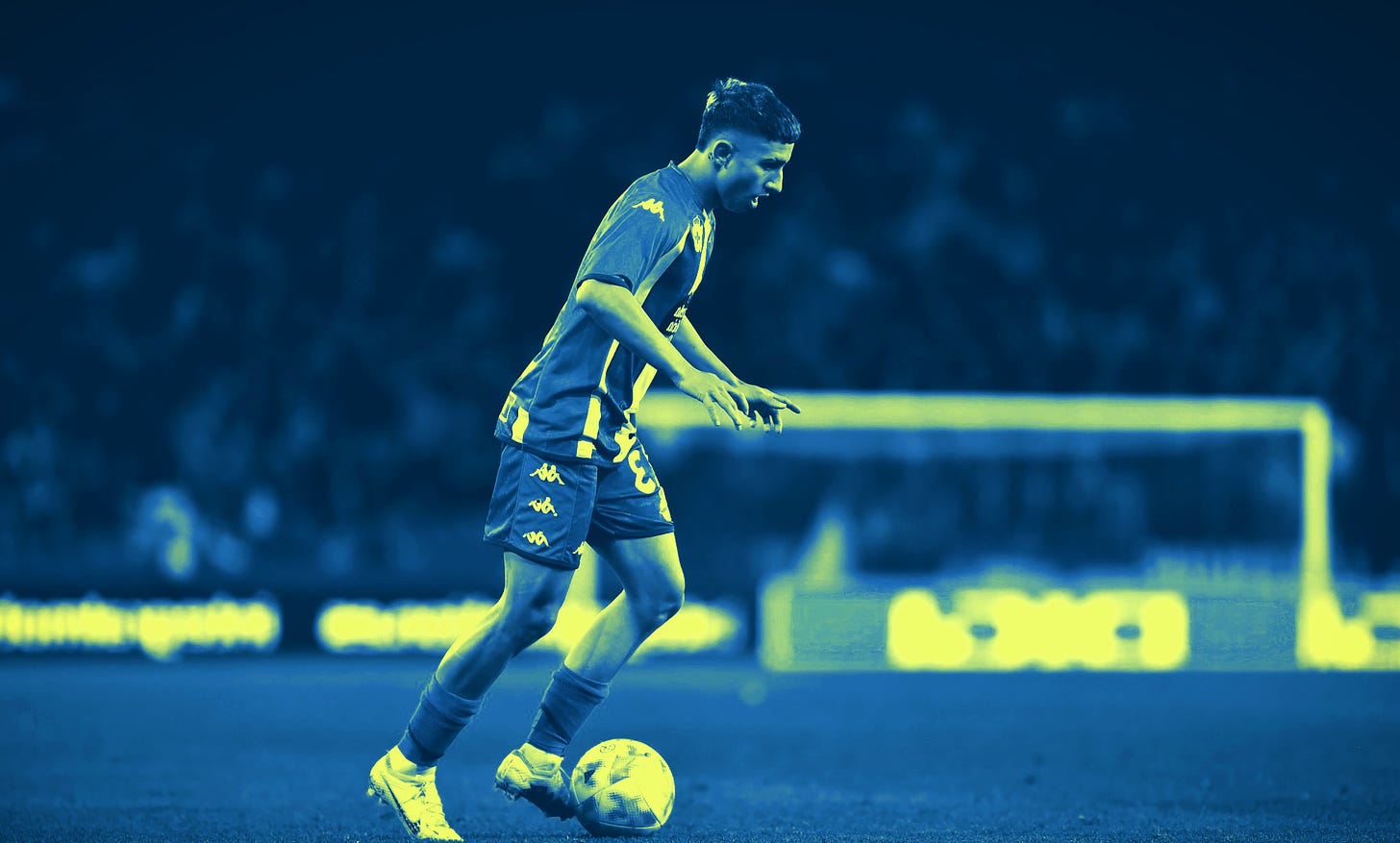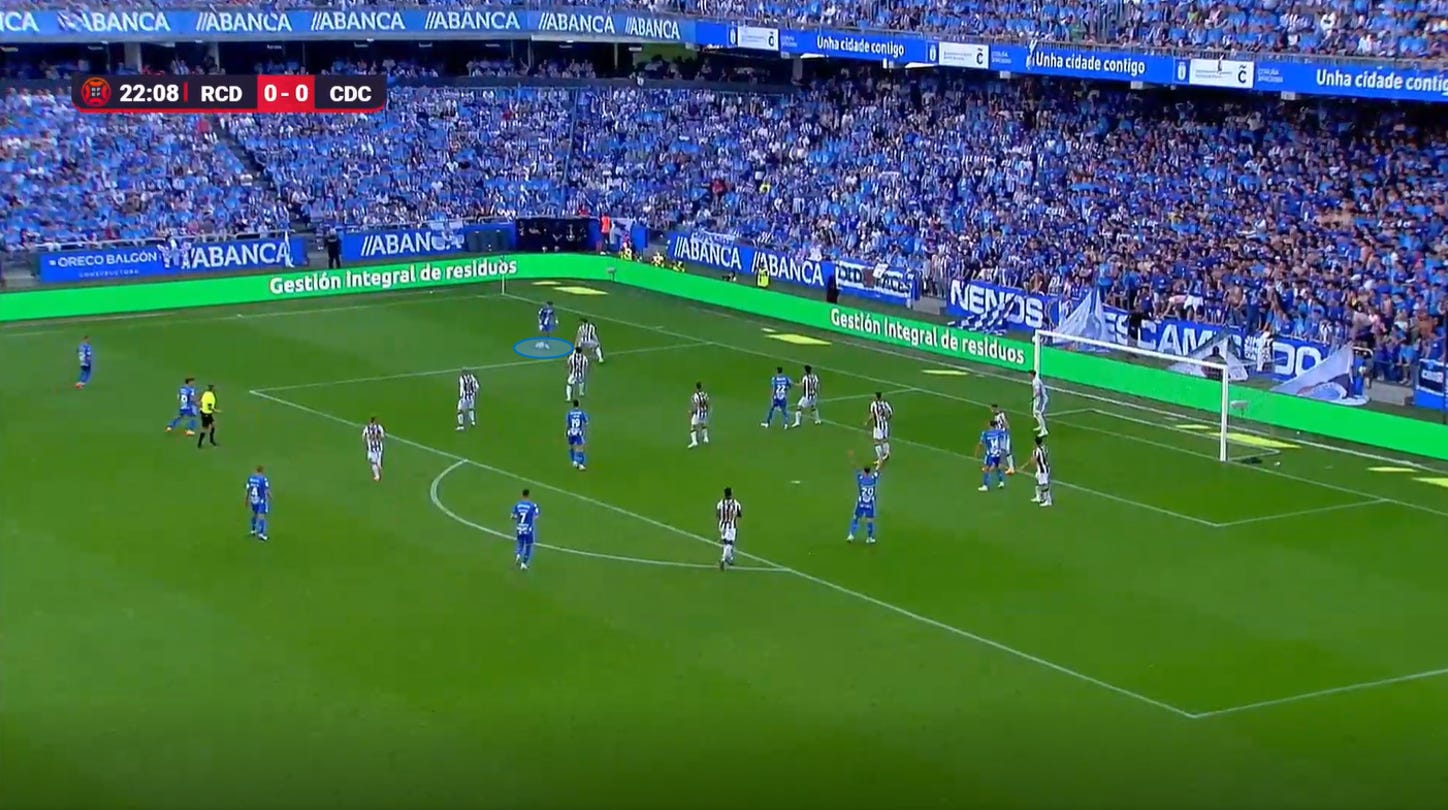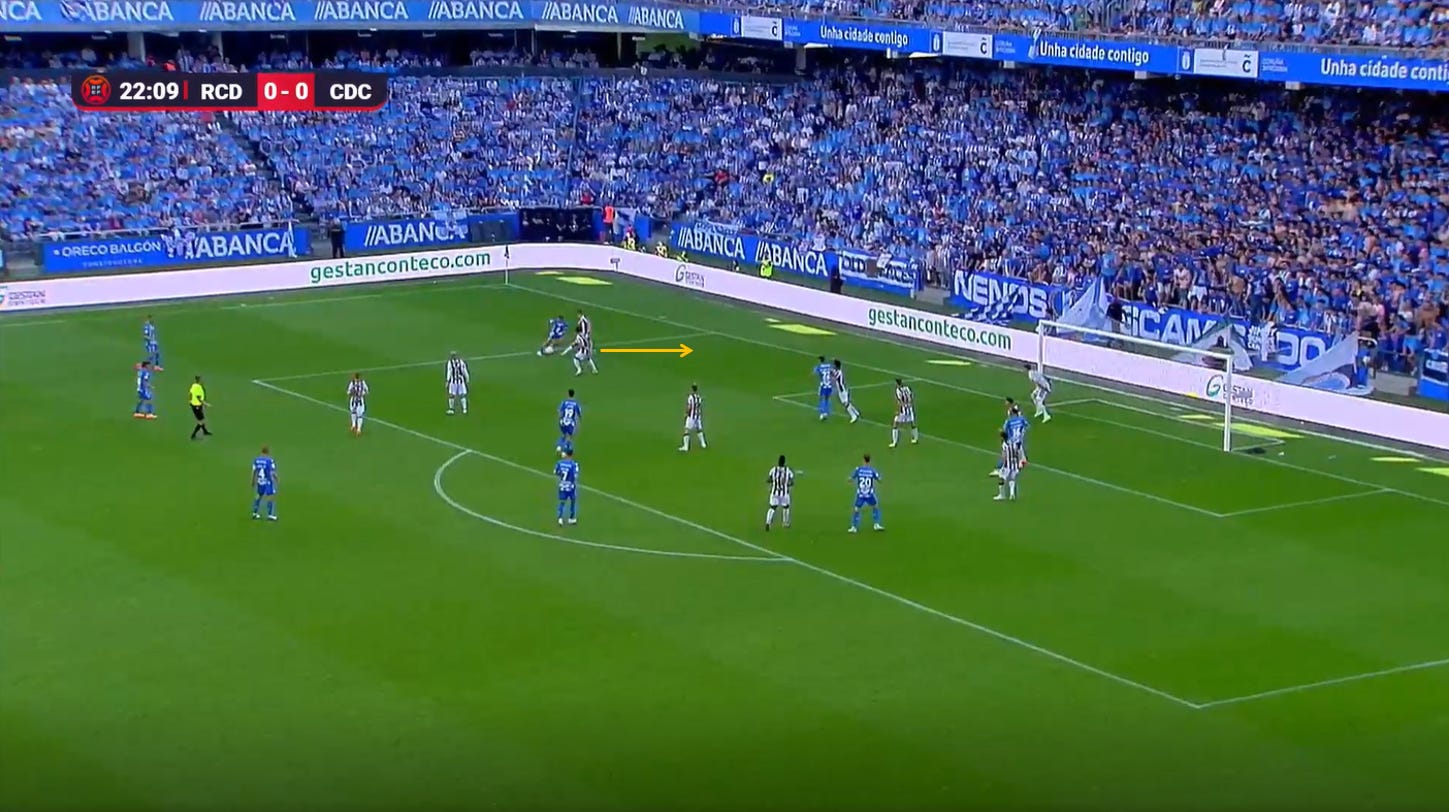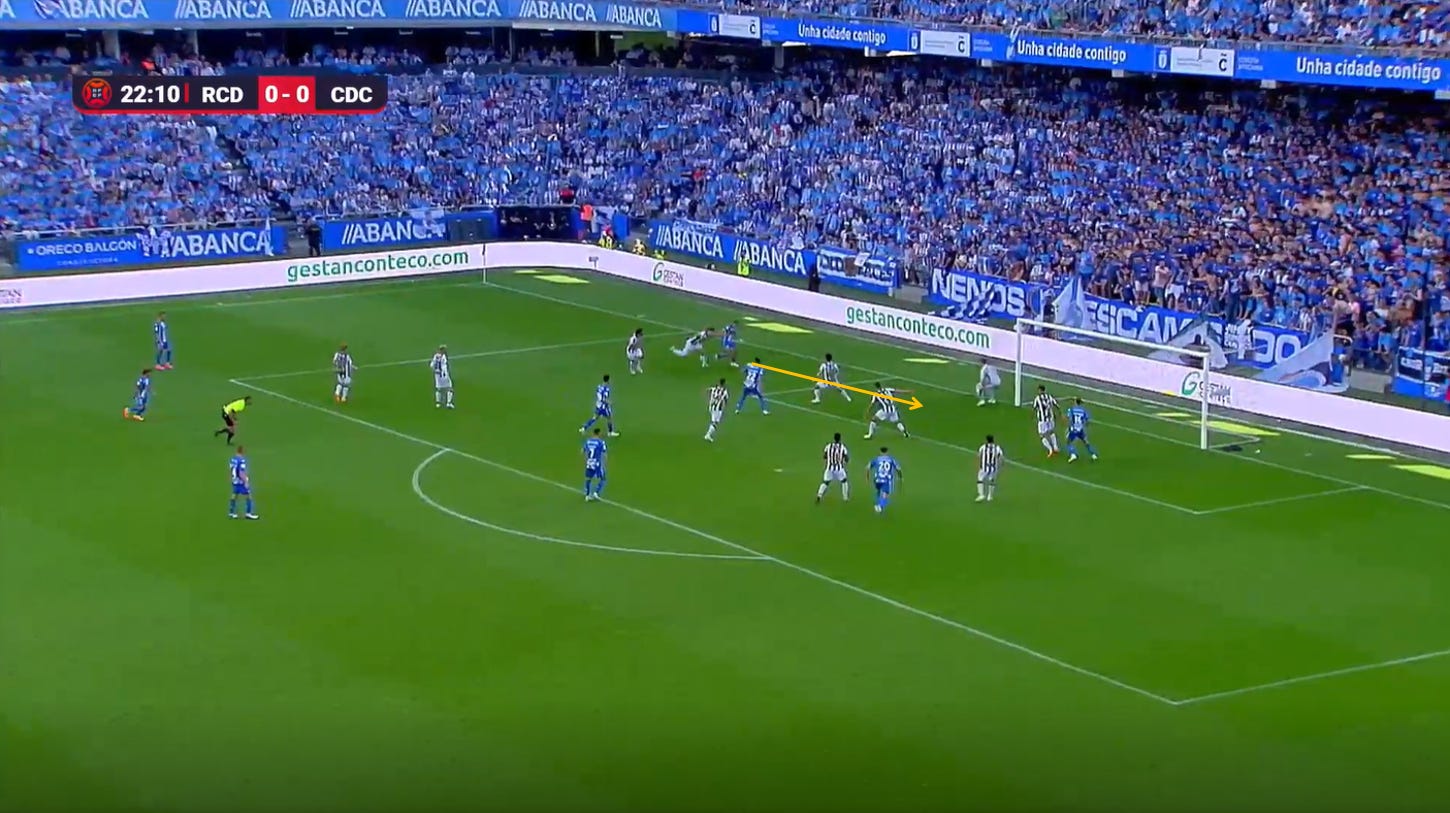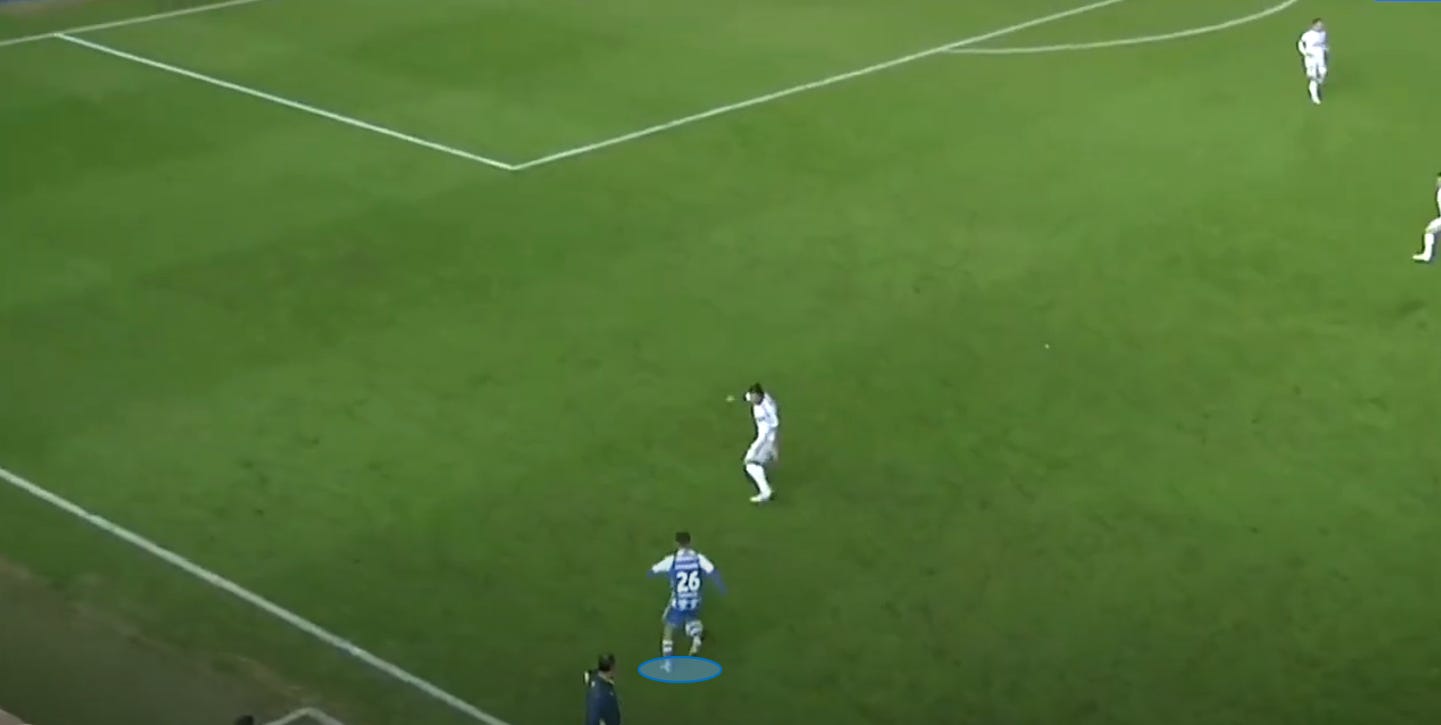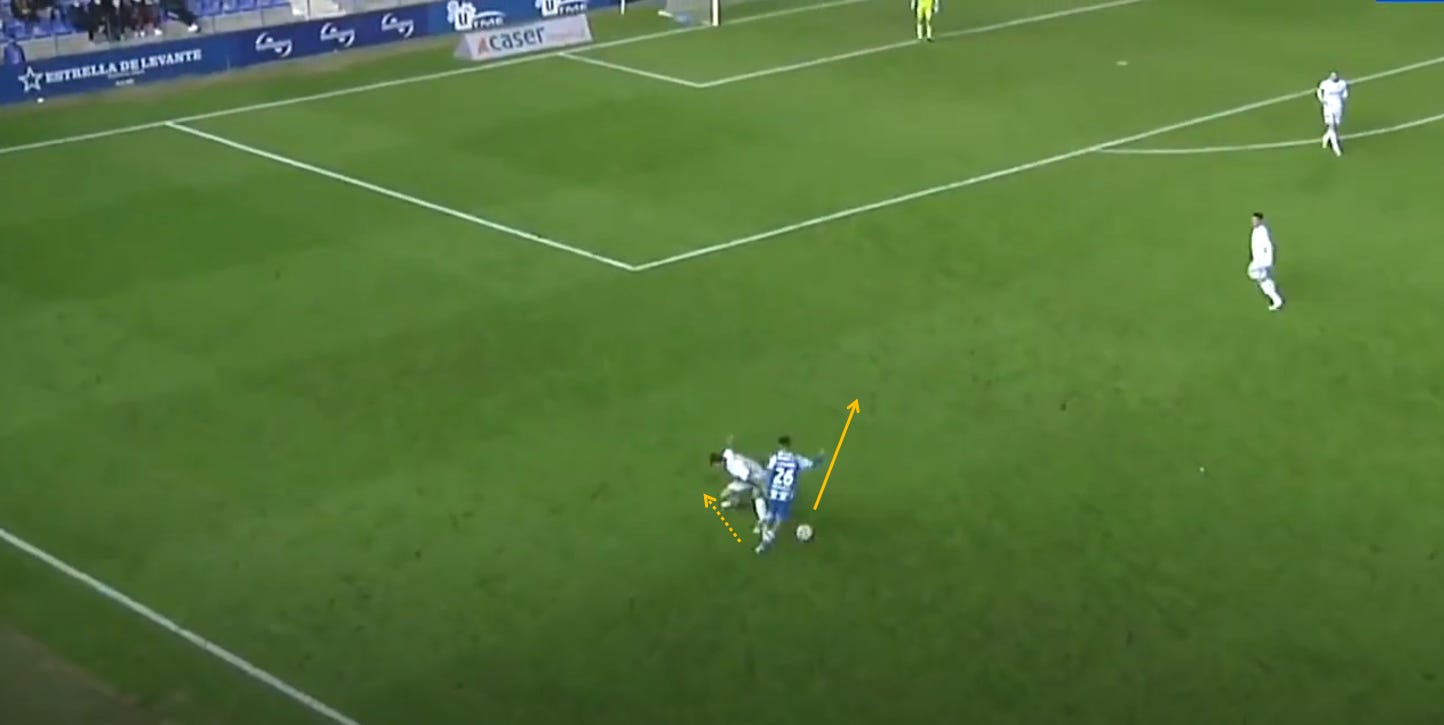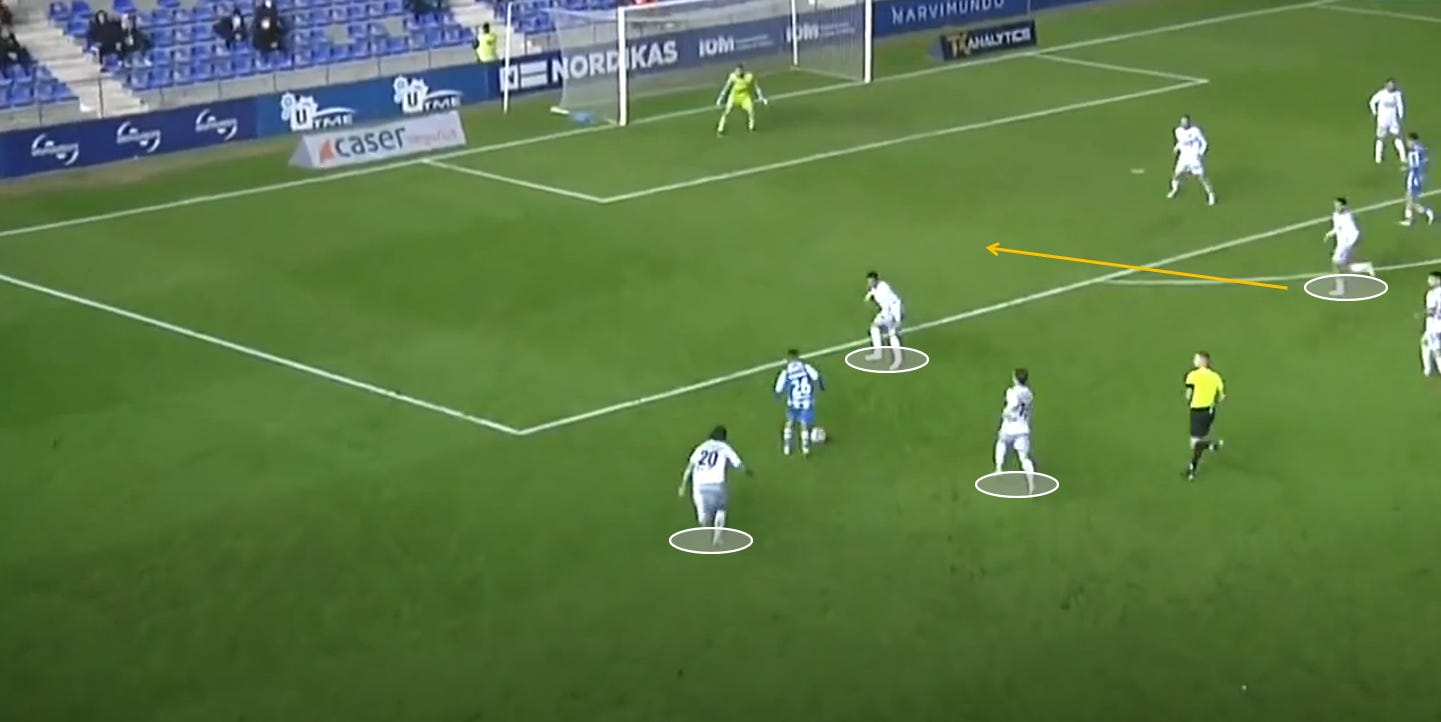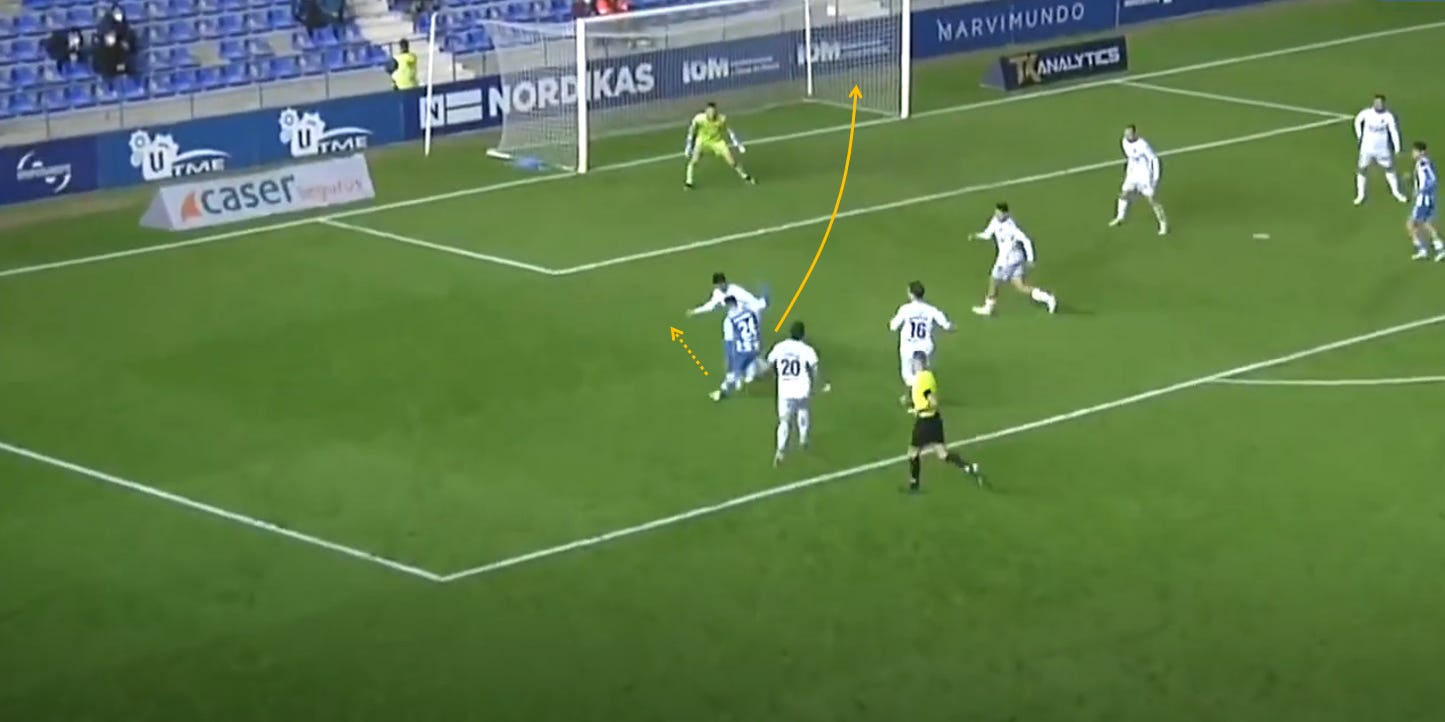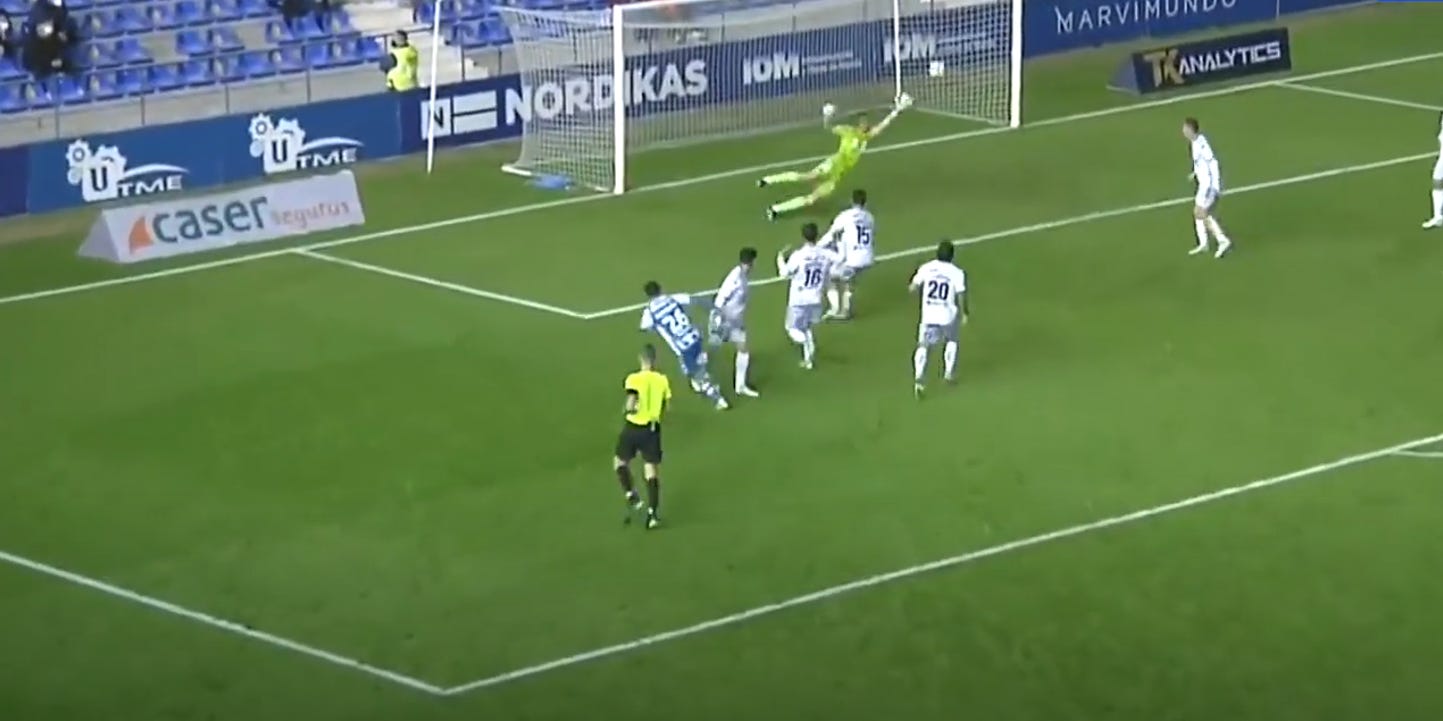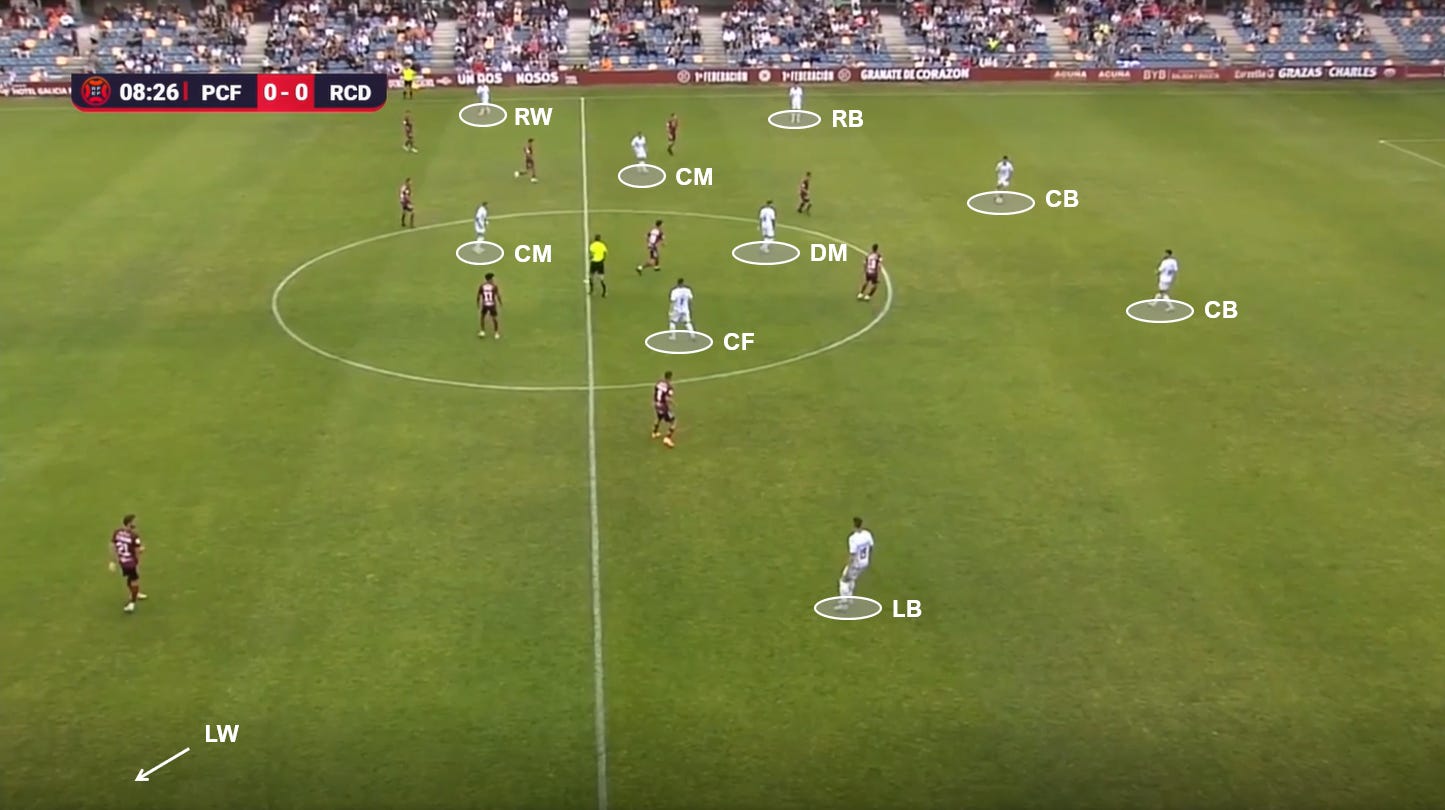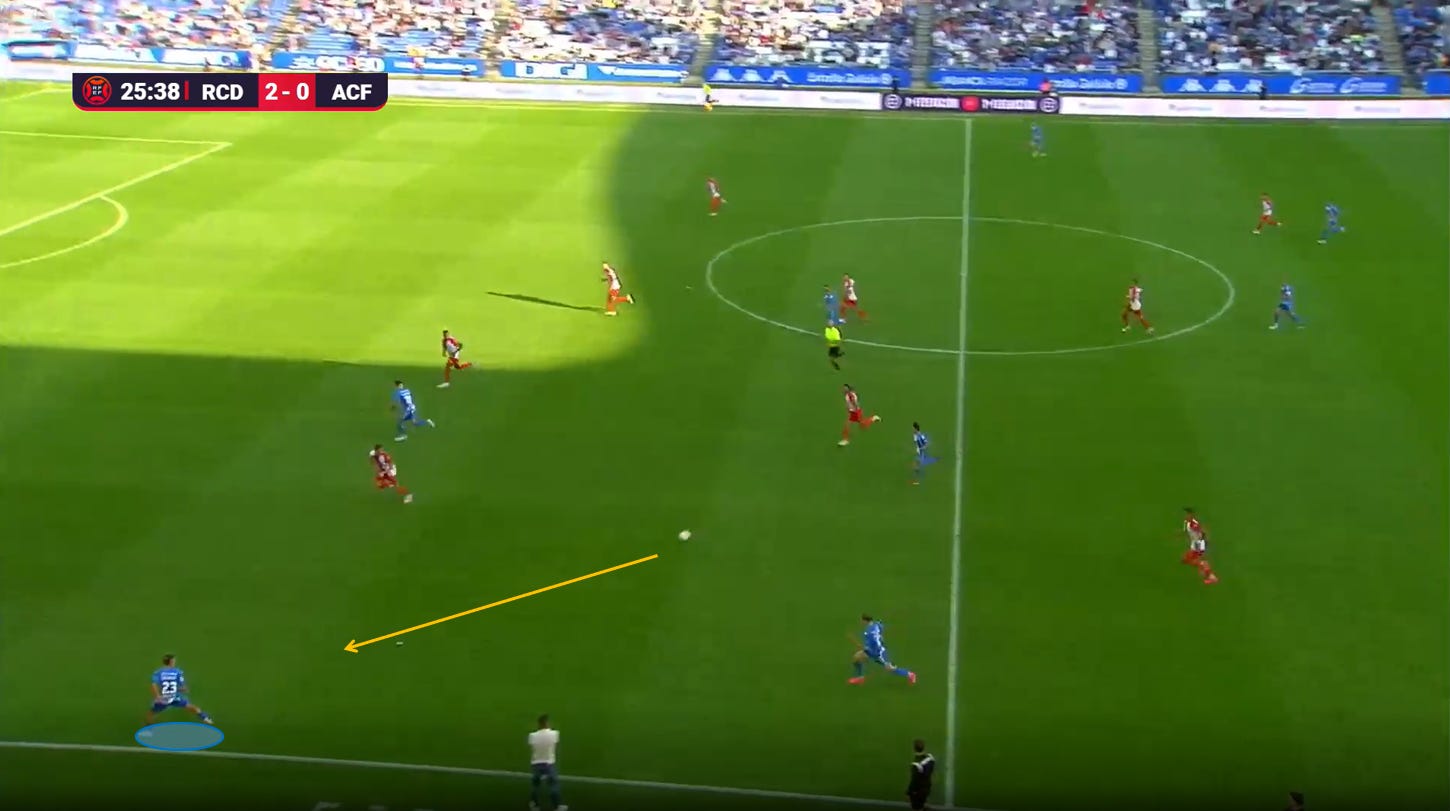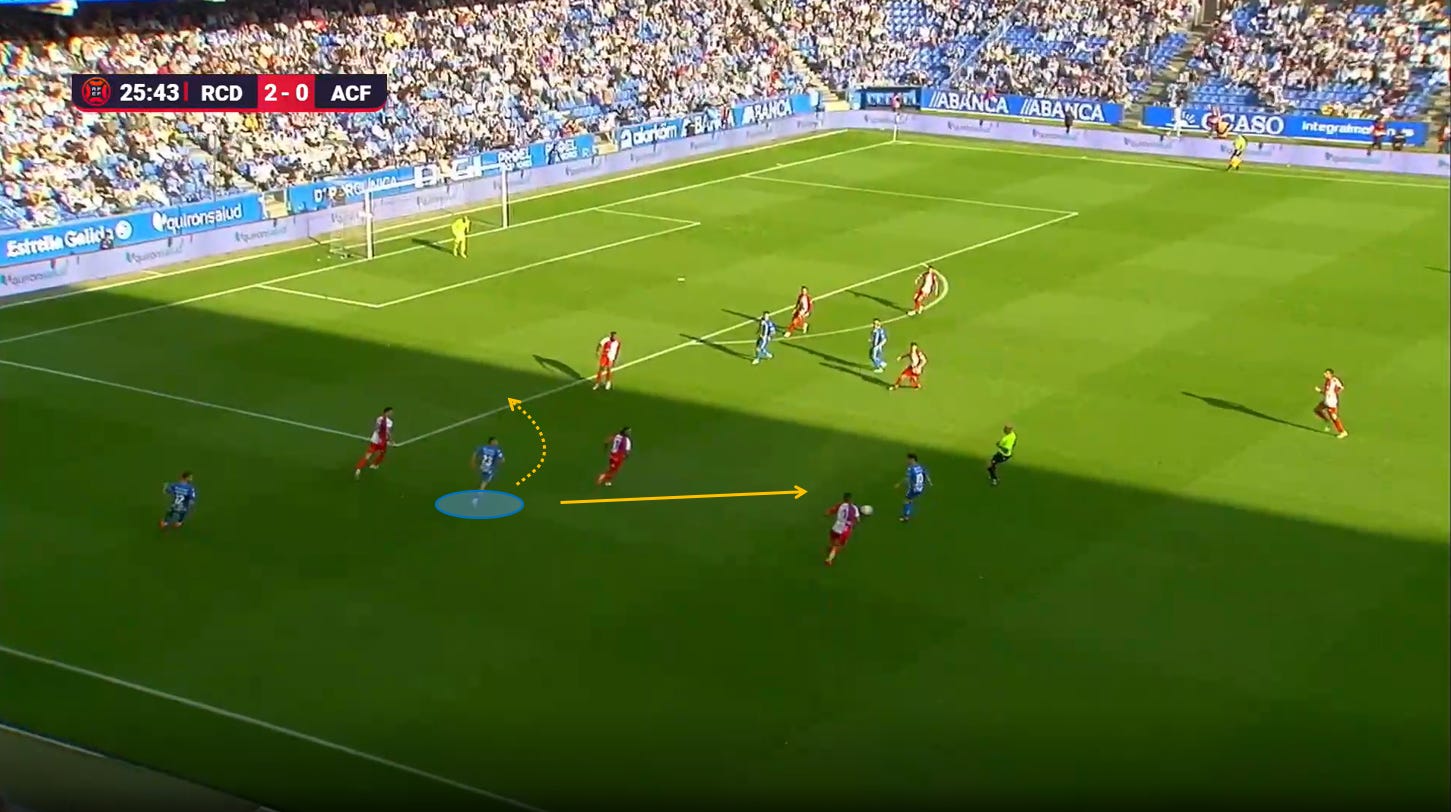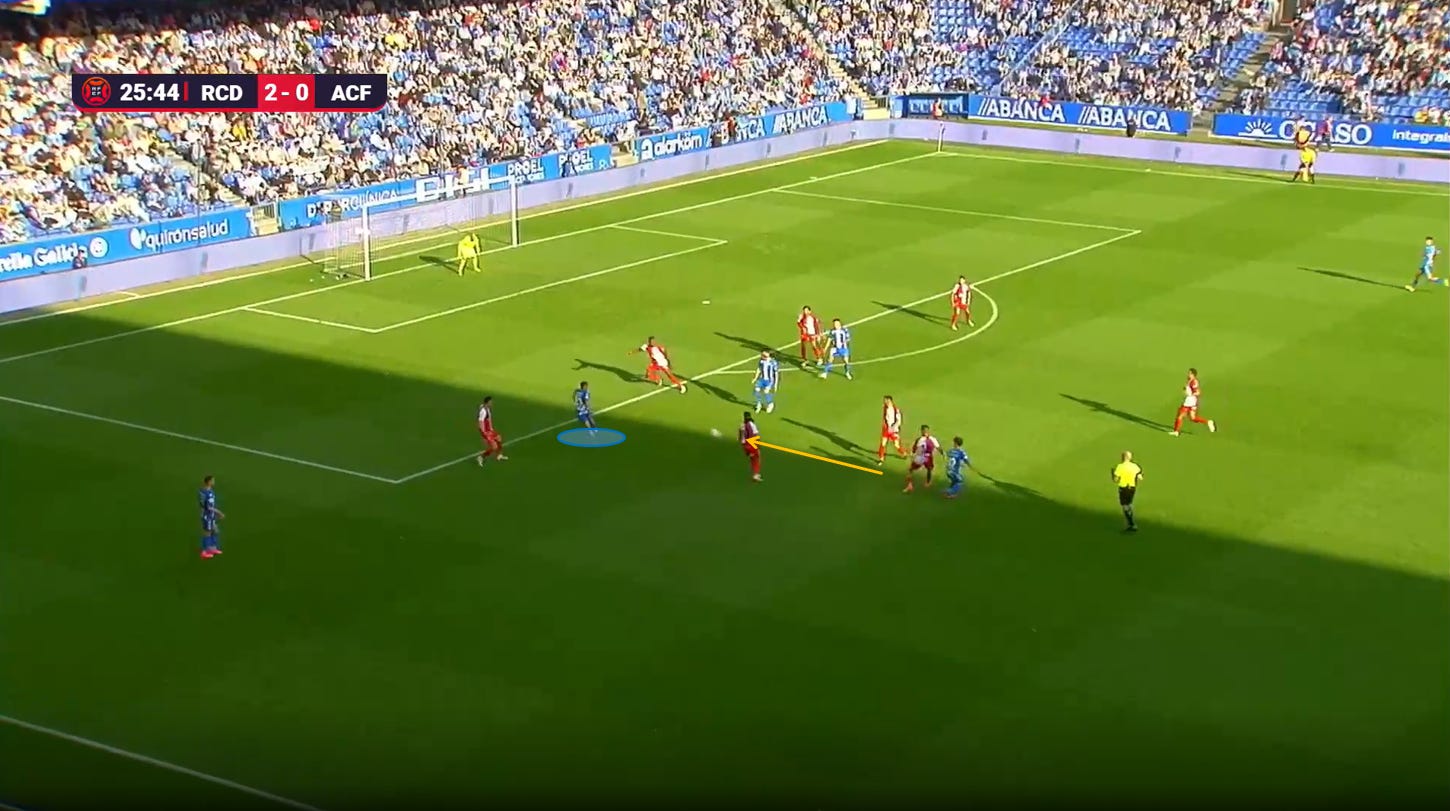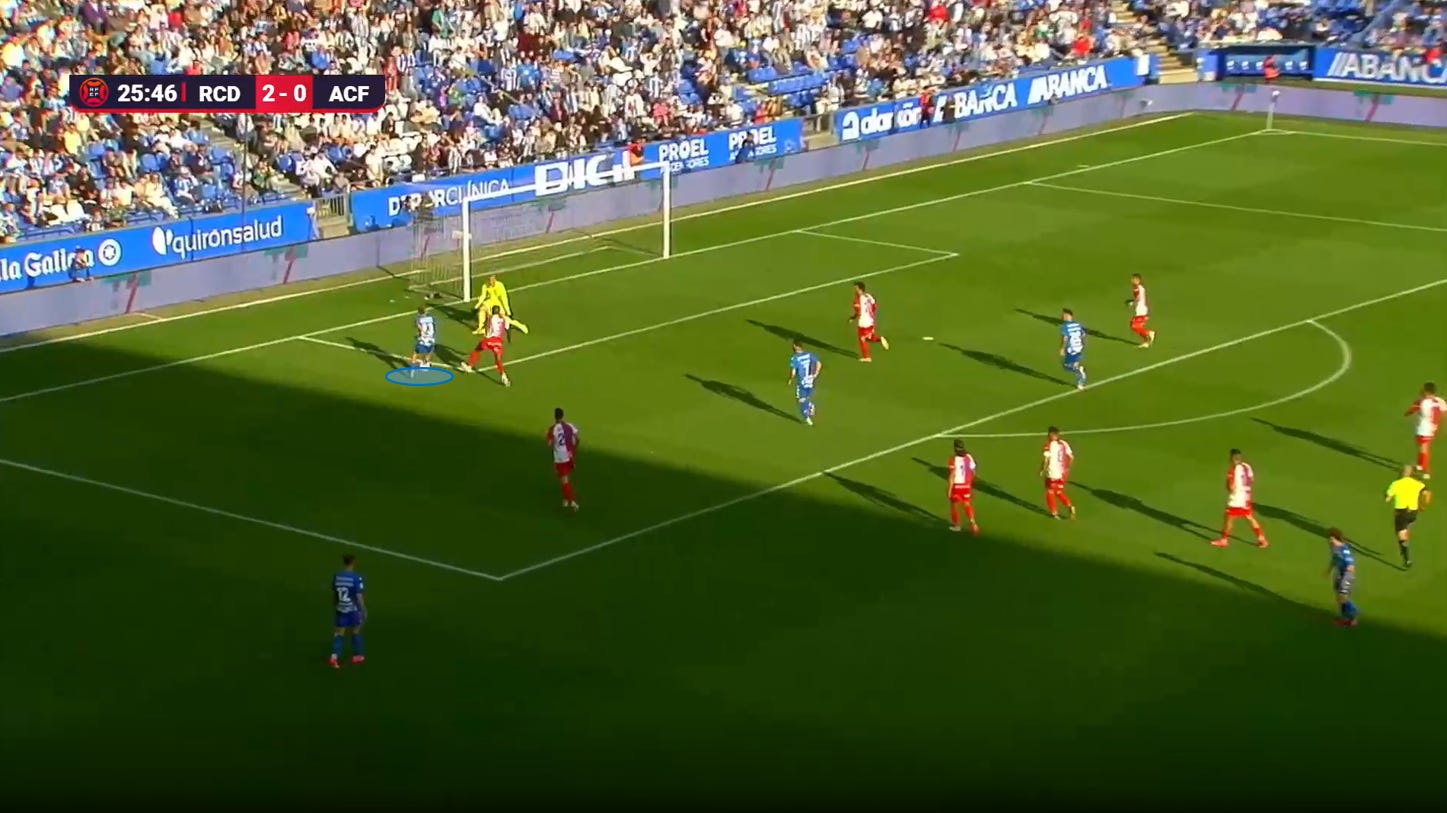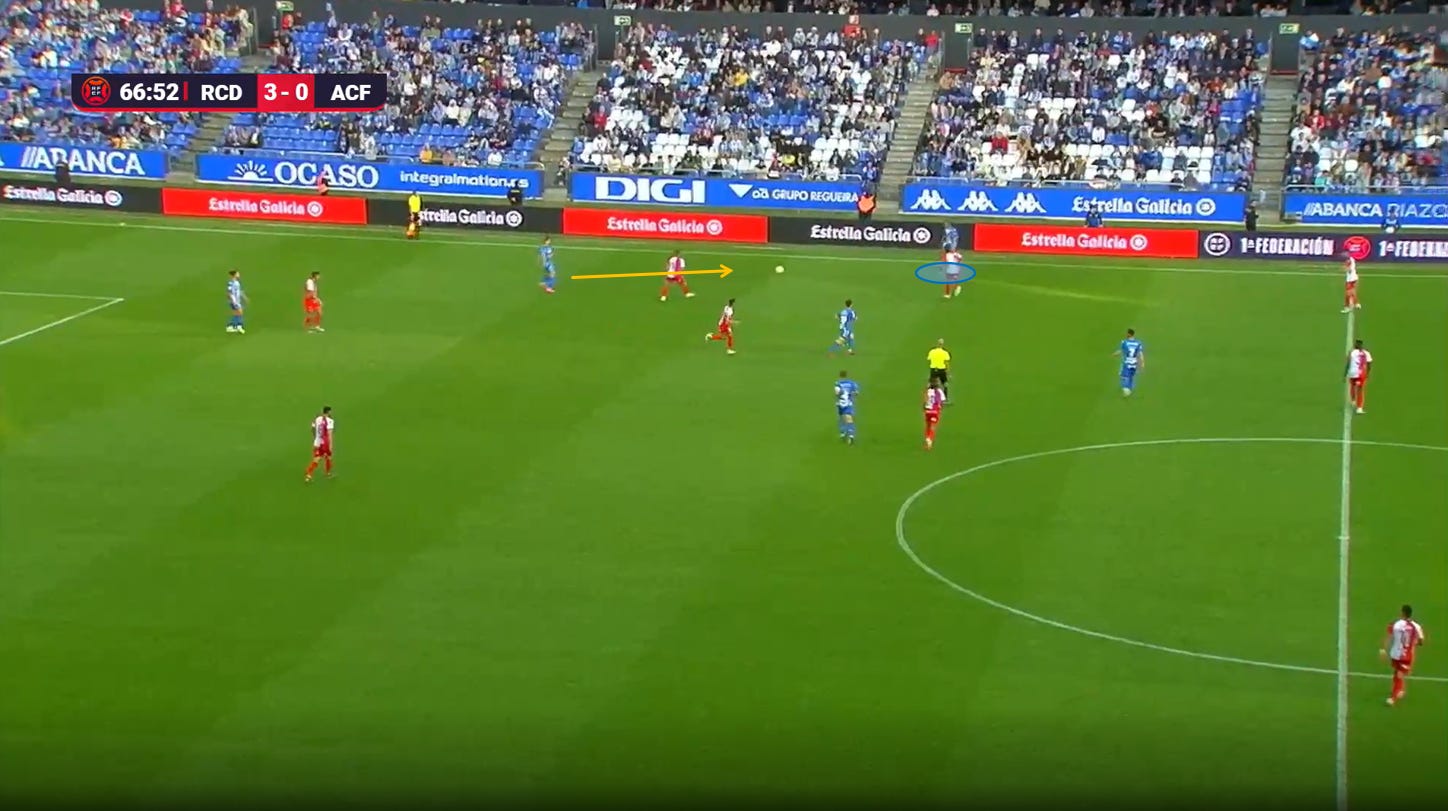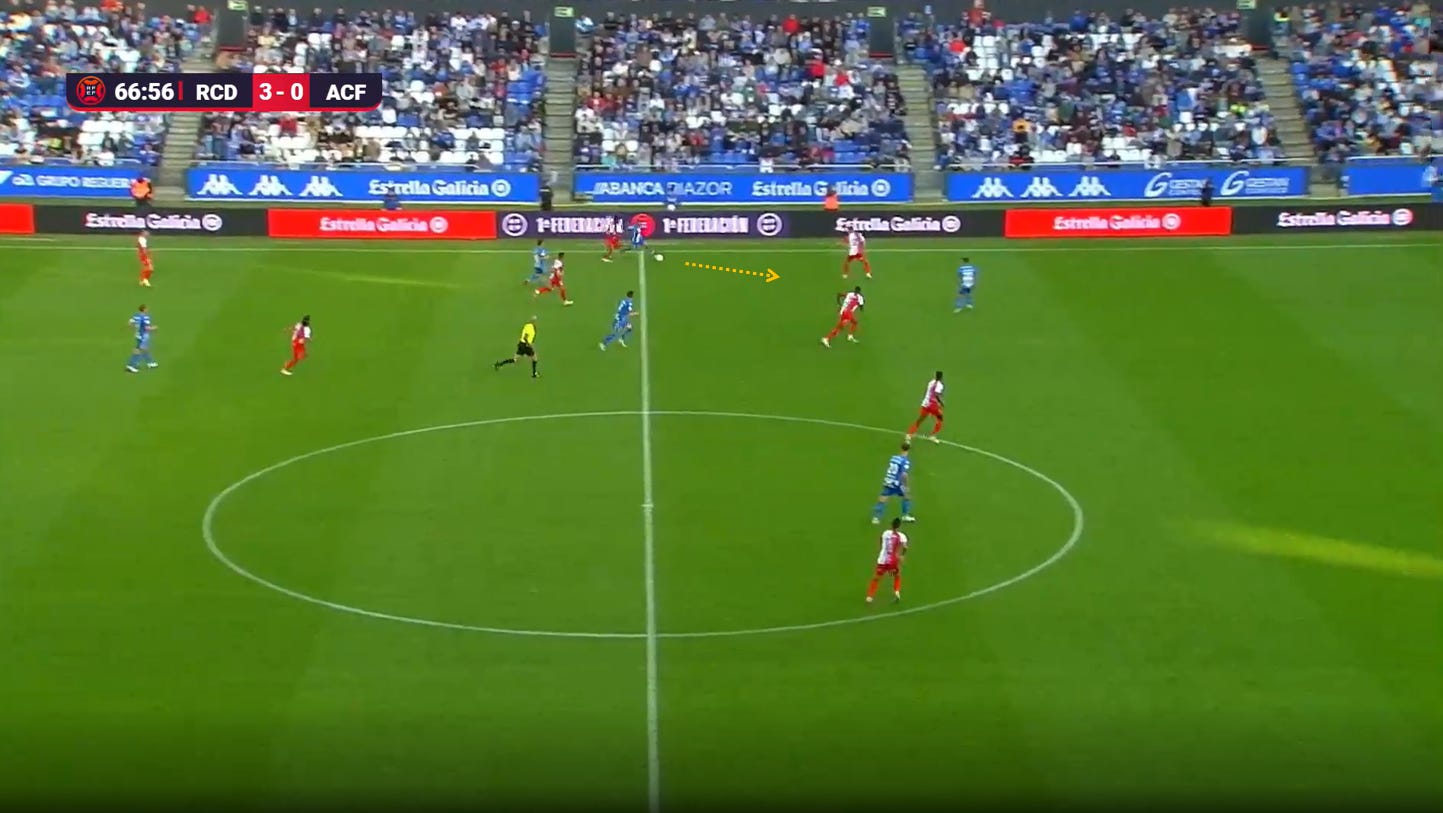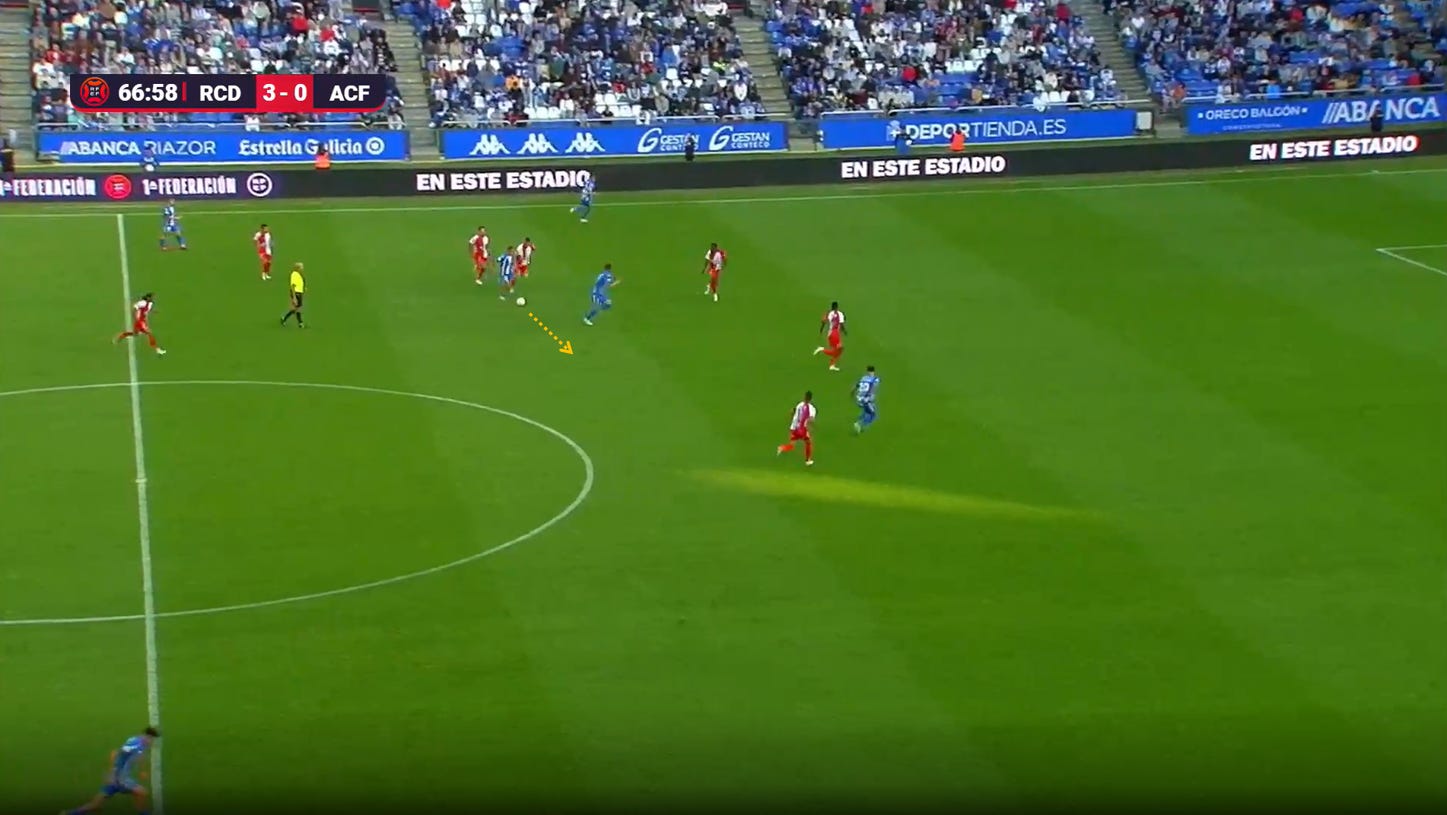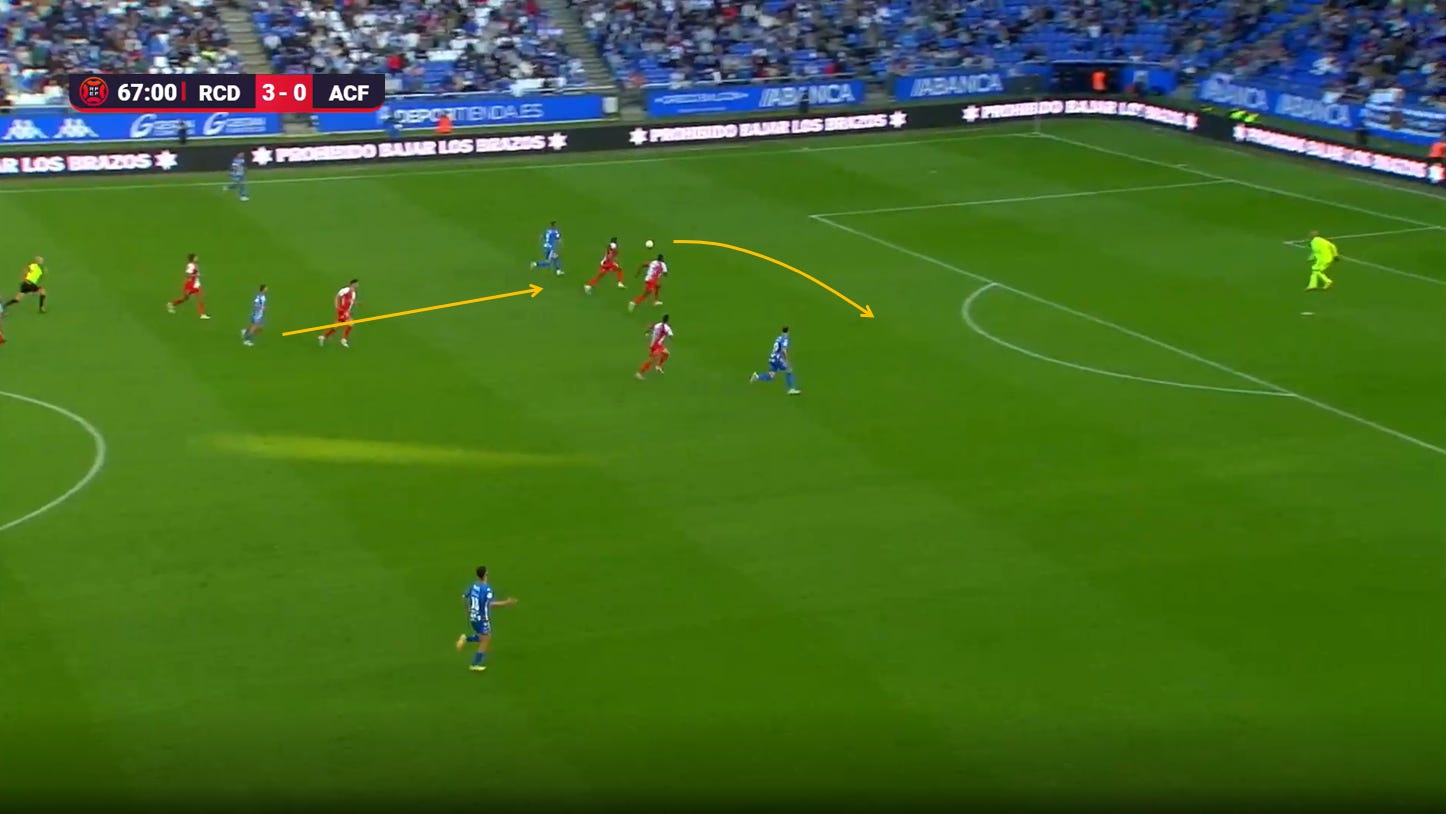On the Radar: Yeremay Hernández
From Las Palmas to A Coruña via Madrid, the 20-year-old winger has settled in Galicia and is beginning to make waves at professional level.
It doesn’t take long to figure out what type of player Yeremay Hernández is. The 20-year-old — also known as Peke — hails from Las Palmas de Gran Canaria, plays on the wing, and wears his socks closer to his ankles than his kneecaps. Although he left his hometown aged just 12, with Real Madrid his destination, that essence of street football which characterises many of those who hail from the islands is precisely what drives him too.
Eight years after leaving for Madrid, Peke is now closing in on those last details which separate talent and functionality. Or rather, the parts which surround the initial talent, that otherwise act as an obstacle to it at professional level. Now with Deportivo de La Coruña, who he joined at 14, the opportunities at first team level have at last arrived — and been duly taken.
For a player who’s still only 20, he has had to be patient in A Coruña. Despite his current club being in the third tier, and Peke being a highly touted national talent, it wasn’t until Rubén de la Barrera was hired in May that his big opportunity came. Prior to that, the sentiment had been that he was a player in formation, someone who needed to adapt to the professional environment and the day-to-day requirements, as well as a player whose physical development had been a little on the slow side. Multiple head coaches had taken the same line on him.
In fact, Rubén de la Barrera’s first game on May 20th featured Peke’s first league start for the club — almost 18 months after the youngster had first debuted for the senior side in a cup game.
Though it might have taken longer than expected – and longer than many fans of the club wanted – that difficult path to the first team now looks to have been a valuable process for the youngster. Out of adversity, the opportunities not coming easy in spite of his talent, and for a player who required certain adaptations to mesh his natural game with the demands of senior football, Peke has very suddenly become one of the club’s most prized assets.
In Rubén de la Barrera’s first game back at Deportivo, it took all of 11 minutes for Peke to show that his talent was now firmly applicable to the club’s immediate aims and the last stop in Depor’s pyramid.
After connecting with Mario Soriano’s threaded pass into the box, he looked to be running out of time and space as he bore down on Algeciras goalkeeper Rubén Miño. The tightening angle, the fact he was moving close to full speed, the late defensive lunge that looked to have interrupted his stride… it appeared to be a diminishing scenario, for most players.
The solution, which he would so naturally deliver, encapsulated much of what makes Peke the prospect that he is:
Used on both wings and as a no. 10 during his formative years at Deportivo, it was on the left side where Peke would finally be given his stripes by the incoming Rubén De la Barrera. What the new coach inherited — just two games before the end of the campaign and with the play-offs on the horizon — was a player of a positive unorthodoxy.
The most striking part of the youngster’s game is the innovation with which he plays in the final third — that area of the pitch when, after arriving in the right conditions, Peke can fully inhabit that player born of the streets, of recreational football, and the expression without limits that those environments afford.
In one-v-one situations, there’s an elasticity to his approach that means he’s not limited to one foot or direction. Without being lightning quick off the mark, he uses feints and chops to win position and keep his markers in a state of imbalance — the type of moves that are felt in the moment, rather than being precisely pre-meditated upon receiving the ball.
(For the purest expression of that, check out his display against Dynamo Kyiv in the UEFA Youth League last year.)
“He’s a really young lad with a brilliant future - someone who has spectacular attributes. Every day he’s more focused, and in the last few weeks he’s changed a lot in that aspect. He’s a differential player. He has attributes that nobody else does.”
Deportivo midfielder Rubén Díez, November 2022
The vicinity of the penalty area is where Peke comes alive, and where his imagination really begins to spark. Those opportunities to face defenders up, especially when he can march them back into their own penalty area and raise the stakes, is where the 20-year-old’s capacity for evasion wreaks havoc.
Here, early on in their play-off game against Castellón — just his third league start, no less — Peke sniffs out his first chance to apply that pressure. After a cleared cross, he recoups the ball and immediately engages a marker from a walking start.
After shifting onto his crossing foot, with teammates waiting in the box, Peke chops back and explodes towards the byline out of his almost crouched position.
With his marker scrambling to recover, he brings the possibility of being fouled into play, before flashing it across the box (parried by Alfonso Pastor).
Here’s his first senior goal for the club, netted against UCAM Murcia in the Copa del Rey. Starting from the touchline, Peke backs his defender down and hunts the space behind him.
Once he sees the defender stop his backward motion, Peke jinks onto his right foot and takes the right back out of the play.
With no other options caught up to the play, Peke’s mind is made up for him. He may be outnumbered, but as he drives towards the penalty area, the recovering UCAM Murcia players are more afraid of him than he is of them.
He accelerates towards his closest marker as the player he most pressingly needs to shift. From there, he throws his body weight to the left but steps over the ball, as the defender follows to the outside.
With space cleared and his right leg returning straight back into shooting motion, his scoring window arrives — and is decisively taken.
That last part of the pitch is where Peke is free to engage the game he feels most deeply. The place where, even when he wanders into a dead end, he can still feel his way towards an escape — even if he couldn’t articulate how. That almost unconscious quality will remain with him for as long as his football career lasts.
In the meantime, however, the youngster has been working towards diversifying his input and finding the place for it at professional level.
For the first team, Peke’s starting position down the stretch of the season almost always came attached to the touchline. Deportivo used a 4-3-3 system, but with a frequently altering dynamic when Lucas Pérez — the no.9 — dropped deeper to form a midfield four.
For the wingers, that often meant receiving in wide areas in one-v-one scenarios, or making diagonal movements off the ball to offset Lucas’ deeper position. Deportivo wanted to populate the centre, in order to open up bigger spaces to attack from wide.
It was here that we saw the prelude to Peke’s arrival at the sharp end of attacks. Through his ball carrying and speed off the mark, Deportivo got plenty out of the winger when it came to accelerating play and changing the rhythm of the game.
Here, on the youngster’s league debut, De la Barrera’s side manage to play through Algeciras and advance an attack through Peke on the wing.
Rather than push for the one-v-one, he begins his dribble with his head up and comes back inside to re-connect with the advancing Mario Soriano.
After playing back, he maintains his momentum and makes a curved run through the corridor between Algeciras’ right back and centre back.
From there, he’s able to bring the ball under his spell and get beyond the defender to fashion a shooting opportunity from close range. (He doesn’t score this time, although to be fair, he had already cashed in his signature move to bamboozle Miño shortly before.)
In the second half, Deportivo again accelerate an attack through Peke - this time from a standing start, without any obvious prior momentum.
After freezing the defender, who’s unsure whether Peke will take the risk in his own half, the youngster punches the ball ahead and catches him flat-footed.
Peke drives towards the full back and then away from him, dragging him out of the back line in pursuit, and putting the remaining defenders on their heels.
He continues the carry to allow Lucas Pérez to set up his run, before sliding him a pass down the outside. Seconds later, the no. 9 squares it across to Max Svensson to add Deportivo’s fourth goal of the game.
Peke is an accelerator, a ball carrier who manages to stave off tunnel vision through associative tendencies. Though he has the natural intent of a winger, the 20-year-old mixes in combinations coming in off the wing and understands how to use the teammates around him to further his individual play. Whether it’s a short one-two to eliminate a defender, or deliberately slowing his dribble to inherit an overlapping full-back and improve his conditions, Peke is a soloist who isn’t tied to his individuality.
At 20 years of age, it’s clear that the Canario is still very much a player under construction in view of senior professional football. There’s work to be done in a physical sense, first of all, with fatigue in the second half of games clearly a factor in his run of starts. It’s a necessary improvent if he’s to comply with the rhythm of the game and sustain his play over 90 minutes, as well as increase his breadth of resources as a winger.
Peke is a natural talent with the ball at his feet. What he’ll have to supplement that with is the engine to be an off-ball threat, to be able to make repeatable runs and movements that bother defenders. If he can get there, that is a two-way process which feeds the potency of both aspects, and results in the double threat which full backs fear most.
The raw materials are there, and Peke has that extra sparkle which clubs, coaches and transfer committees won’t give up on until it’s blindingly obvious one way or another. From the long journey that began in 2015, the end now looks near.
Or should we say, the beginning.





